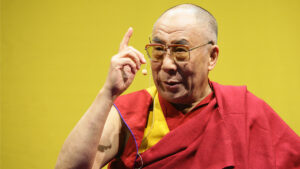Mindfulness
Unconditional Compassion
June 22, 2021Since 2010, Flourish Foundation has innovated and facilitated programs that nurture life skills and transformation through ethics and values, meditation and experiential Inquiry.
The heart of our work focuses on revealing our human potential for leading a wise, moral and compassionate life. Through our tenure as a social-profit we have seen that nurturing this potential individually and collectively empowers us all to naturally care for ourselves, each other and the planet.
“Safeguarding the future is not just a matter of laws and government regulations: it also requires individual initiative. We need to change our way of thinking and to close the gap between perception and reality. — Tenzin Gyatso the 14th Dalai Lama
“Having mindfulness as a regular part of our week has gone a long way to making it a regular part of our lives. That we take and make this time to work on focus, clarity, and relaxation, that we discuss kindness and intentionality- these are all key elements of our school, and key components of how we think we can help develop teenagers who are thoughtful and engaged — Harry Weekes, Head of School, The Sage School
Mindful, Selfless, and Compassionate
June 5, 2021Harvard Business Review
Andreas Rentz/Getty Images
Summary.
The Dalai Lama shares his observations on leadership and describes how our “strong focus on material development and accumulating wealth has led us to neglect our basic human need for kindness and care.” He offers leaders three recommendations. First, to be mindful: “When we’re under the sway of anger or attachment, we’re limited in our ability to take a full and realistic view of the situation.” Also, to be selfless: “Once you have a genuine sense of concern for others, there’s no room for cheating, bullying, or exploitation; instead you can be honest, truthful, and transparent in your conduct.” And finally, to be compassionate: “When the mind is compassionate, it is calm and we’re able to use our sense of reason practically, realistically, and with determination.”
by the Dalai Lama with Rasmus Hougaard
What can leaders do?
Be mindful
Cultivate peace of mind. As human beings, we have a remarkable intelligence that allows us to analyze and plan for the future. We have language that enables us to communicate what we have understood to others. Since destructive emotions like anger and attachment cloud our ability to use our intelligence clearly, we need to tackle them.
Fear and anxiety easily give way to anger and violence. The opposite of fear is trust, which, related to warmheartedness, boosts our self-confidence. Compassion also reduces fear, reflecting as it does a concern for others’ well-being. This, not money and power, is what really attracts friends. When we’re under the sway of anger or attachment, we’re limited in our ability to take a full and realistic view of the situation. When the mind is compassionate, it is calm and we’re able to use our sense of reason practically, realistically, and with determination.
Be selfless
We are naturally driven by self-interest; it’s necessary to survive. But we need wise self-interest that is generous and cooperative, taking others’ interests into account. Cooperation comes from friendship, friendship comes from trust, and trust comes from kindheartedness. Once you have a genuine sense of concern for others, there’s no room for cheating, bullying, or exploitation; instead, you can be honest, truthful, and transparent in your conduct.
Be compassionate
The ultimate source of a happy life is warmheartedness. Even animals display some sense of compassion. When it comes to human beings, compassion can be combined with intelligence. Through the application of reason, compassion can be extended to all 7 billion human beings. Destructive emotions are related to ignorance, while compassion is a constructive emotion related to intelligence. Consequently, it can be taught and learned.
Buddhist tradition describes three styles of compassionate leadership: the trailblazer, who leads from the front, takes risks, and sets an example; the ferryman, who accompanies those in his care and shapes the ups and downs of the crossing; and the shepherd, who sees every one of his flock into safety before himself. Three styles, three approaches, but what they have in common is an all-encompassing concern for the welfare of those they lead.”
Full piece:
Right action.
May 13, 2019The Vietnamese Zen teacher Thich Nhat Hanh said, “The basis of Right Action is to do everything in mindfulness.” He teaches Five Mindfulness Trainings:
- The first training involves respecting life. In awareness of the suffering caused by the destruction of life, we work to protect all living things and this planet that sustains life.
- The second training involves generosity. We give freely of our time and resources where they are needed, without hoarding things we don’t need. We do not exploit other people or resources for our own gain. We act to promote social justice and well-being for everyone.
- The third training involves sexuality and avoiding sexual misconduct. In awareness of the pain caused by sexual misconduct, we honor commitments and also act when we can to protect others from sexual exploitation.
- The fourth training involves loving speech and deep listening. This means avoiding language that causes enmity and discord. Through deep listening to others, we tear down the barriers that separate us.
- The fifth training involves what we consume. This includes nourishing ourselves and others with healthful food and avoiding intoxicants. It also involves what books we read or what television programs we watch. Entertainments that are addictive or cause agitation might best be avoided.
The importance of compassion in Buddhism cannot be overstated. The Sanskrit word that is translated as “compassion” is Karuna, which means “active sympathy” or the willingness to bear the pain of others. Closely related to Karuna is Metta, ‘loving kindness.’
Five minute mindfulness meditation:
https://www.youtube.com/watch?v=wGFog-OuFDM

